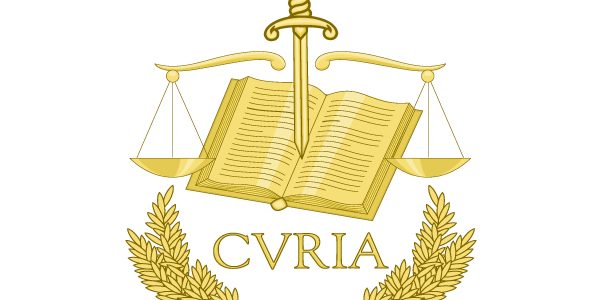The Court of Justice of the EU (CJEU) on 21 September 2017 delivered its rulings annulling for procedural reasons the judgements of the General Court (GC) in the Italian reinforcing bars cartel C-85/15 P Feralpi, (as well as C-86/15 P C-87/15 P Ferriera Valsabbia&Valsabbia Investimenti/Alfa Acciai, C-88/15 P Ferriere Nord, and C-89/15 P Riva Fire). Now the European Commission (EC) will study the possible actions to comply with the procedural requirement outlined by the CJEU. The case concerns the powers/competence of the EC prior and after the expiry of the European Coal and Steel Community Treaty (ECSC), hence changes of the procedural rules and legal grounds for competition investigations. The main message of the CJEU is that the procedure resulting in the EC’s decision must conform to the procedural rules laid down by the regulation currently in force, even if the procedure began before that regulation came into force.
Background
Investigation & EC’s 2000 decision. In 2000 the EC conducted investigations at the premises of certain Italian undertakings engaged in the manufacture of reinforcing bars and at the premises of an association of certain Italian steel undertakings under Article 47 ECSC , following which administrative procedures followed (statement of objections under the ECSC; hearing; supplementary statement of objections under Regulation 17, explaining EC’s position regarding further proceedings following the expiry of the ECSC on 23 July 2002; and the second hearing). The EC adopted Decision Case COMP/37.956 — Reinforcing bars in 2002 finding a cartel and imposing a fine in the amount of EUR 10.25 million (under Article 65 ECSC).
GC’s ruling. In 2003 Feralpi challenged the EC’s 2002 decision before the GC. In 2007 the GC annulled the EC’s 2002 decision primarily on the grounds that it did not contain any reference to Regulation 17, but the ECSC alone, which had expired, and hence the EC could no longer derive competence from those provisions, which were no longer in force when it adopted the 2002 decision.
EC’s 2009 decision. In 2008 the EC decided to re-adopt its decision which was based on the evidence already presented to it. The parties were given a deadline to submit their observations. The EC’s 2009 decision finding the violation did not contain the tables illustrating the price variations in the annex. The EC adopted the amending decision, which included in its annex the missing tables and corrected the numbered references to those tables in eight footnotes.
GC & CJEU. In 2010 Feralpi unsuccessfully challenged the EC’s 2009 decision before the GC, following which its appeal against the GC’s ruling was supported by the CJEU.
Main findings of the CJEU
In the Feralpi case, the CJEU upheld the claimant’s position and ruled that the GC made an error in law in holding that the EC was not obligated to organize a new hearing before adopting the decision at issue, on the ground that the undertakings concerned had already had the opportunity to be heard orally at the hearings prior to the expiry of the ECSC.
Today, the EC must give the parties to whom it addresses a statement of objections the opportunity to develop their arguments at an oral hearing, if they so request in their written comments. The competition authorities of the Member States are to be invited to participate in the oral hearing which is to follow the issuing of the that statement. Such participation was not provided for in the ECSC Treaty. Therefore, the representatives of the Member States did not participate in a hearing concerning the substance of the Feralpi case, but participated only in the one concerning the legal consequences resulting from the expiry of the ECSC Treaty. Yet, according to the case-law when a decision is adopted on the basis of Regulation No 1/2003, the procedure resulting in that decision must conform to the procedural rules laid down by the regulation, even if the procedure began before that regulation came into force.
Having regard to the importance of holding an oral hearing, failure to hold such a hearing constitutes infringement of an essential procedural requirement. In so far as the right to such a hearing was not respected, it is not necessary for the undertaking, the rights of which have been infringed in this way, to demonstrate that such infringement might have influenced the course of the proceedings and the content of the decision at issue to its detriment. Accordingly, the procedure is necessarily vitiated, regardless of any possible detrimental consequences for Feralpi that could result from such an infringement.
As a result, this is sufficient ground for setting aside the judgement under the appeal and the EC’s decision finding the cartel and imposing the respective fine.
Concluding remarks
The CJEU annulled the GC’s ruling as well as the EC’s 2009 decision. Now the EC will study the possible actions to comply with the procedural requirement outlined by the CJEU, primarily focusing on compliance with the right to be heard/oral hearings of the parties concerned.
Hanna Stakheyeva








